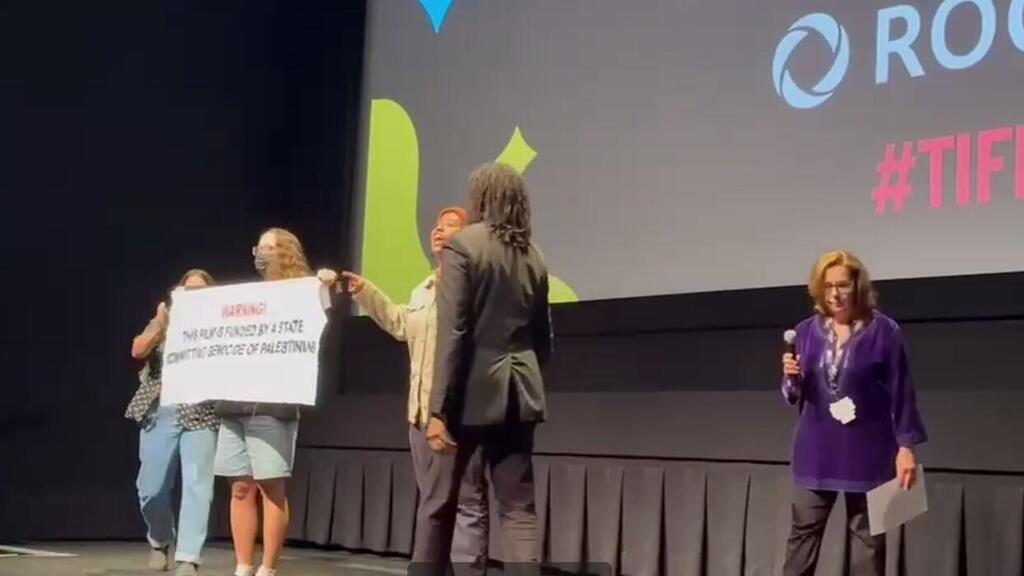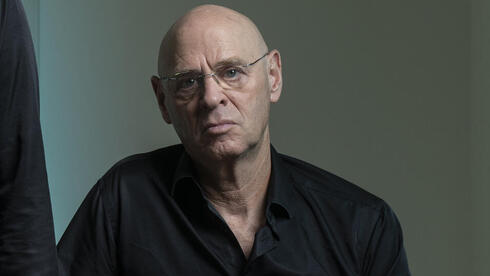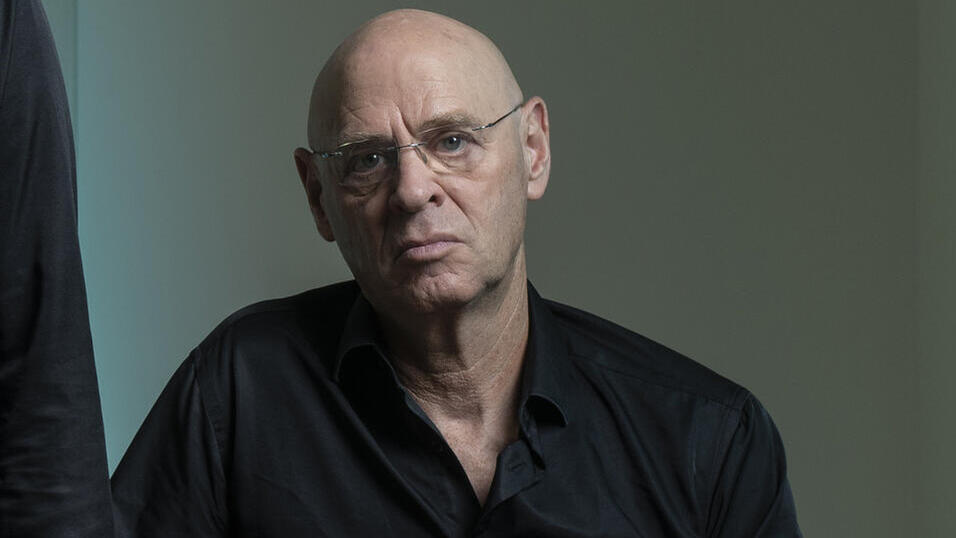The Toronto International Film Festival (TIFF) has pulled the documentary “The Road Between Us: The Ultimate Rescue,” which follows retired IDF Maj. Gen. Noam Tibon and his actions during and after the October 7 Hamas massacre. The decision came despite an initial plan to include the work by acclaimed Canadian filmmaker Barry Avrich in the festival’s prestigious documentary lineup.
Organizers cited what they called “general requirements necessary for inclusion in the festival, such as legal clearance for the filmed materials,” and referred to a “potential threat of significant disruptions.” While TIFF framed the move as an administrative step, the filmmakers suspect political motives aimed at avoiding unrest over the war in Gaza.
Tibon, a prominent critic of Prime Minister Benjamin Netanyahu’s judicial overhaul, drove from his home in Tel Aviv to southern Israel on the morning of October 7, joining an IDF Maglan unit in Kfar Aza to help rescue residents — including his son, journalist Amir Tibon. Since that day, he has become one of the government’s most outspoken critics.
Avrich, a veteran Jewish-Canadian director, traveled to Israel to document Tibon’s story — both his battlefield heroism and his public opposition to the Netanyahu government. The film was completed in time for this year’s TIFF, and the production team had been told to expect a gala premiere. Last week, however, they discovered it had been quietly dropped from the official program.
“The invitation of the Canadian documentary “The Road Between Us: The Ultimate Rescue” was withdrawn from TIFF because it failed to meet general conditions set when the film was first invited, such as legal clearance for the footage,” a festival spokesperson said. “The purpose of these conditions was to protect TIFF from legal consequences and to address known and foreseeable risks around screening a film on such a sensitive subject, including the potential threat of significant disruptions. TIFF reserves the right to remove any film it deems not beneficial to the festival.”
TIFF did not specify which legal conditions were unmet. But last year, organizers faced major logistical and security challenges, including protests against Anastasia Trofimova’s “Russians at War,” which followed Russian soldiers in Ukraine. Despite its anti-war stance, the screening drew fierce criticism and demonstrations, and was ultimately canceled after its premiere. Pro-Palestinian activists also disrupted the screening of Israeli filmmaker Shemi Zarhin’s drama “Hamada,” and anti-government Israeli protesters picketed Alexandra Bloom’s “The Bibi Files,” about Prime Minister Benjamin Netanyahu. Against this backdrop, TIFF’s decision to remove “The Road Between Us” appears to reflect heightened political sensitivity.
2 View gallery


Pro-Palestinian protesters who stormed the screening of “Hamada” in 2024 at the Toronto festival
(Photo: United King)
According to Deadline, which broke the story, Avrich’s film was originally submitted under the title “Out of Nowhere: The Ultimate Rescue.” The festival reportedly asked the filmmakers to re-edit certain sections and remove Hamas-shot footage of murders committed on October 7, even though such clips have already circulated worldwide. TIFF denied ordering their removal but insisted on identifying the sources and obtaining legal permission to use them. The filmmakers were also required to purchase insurance for the festival in case of lawsuits and to hire security for the screening due to elevated safety concerns.
“We are shocked and saddened that such a prestigious festival has abandoned its mission and censored its own curatorial decisions by refusing to accept the film,” Avrich’s team said. “Cinema is an art form that sparks discussion from every perspective — it can entertain and make us uncomfortable. A film festival offers the opportunity, and audiences decide whether to watch. We are not political filmmakers or activists; we are storytellers. We stand by our work, we will distribute it, and we invite audiences, broadcasters and streaming platforms to judge for themselves after they see it.”
Tibon was even more blunt: “The Toronto festival surrendered to pressure and threats, choosing to silence and erase October 7. Barry Avrich’s documentary tells a human, not political, story, documenting the grim reality of Israel’s darkest day. The claim that it cannot be screened because it lacks ‘usage rights’ for Hamas footage from that day is absurd and outrageous — and an insult to the victims.
“Freedom of expression is the courage to present and hear challenging content, even if it is uncomfortable for some audiences,” he added. “TIFF is screening films from a Palestinian perspective this year, yet censors a film about October 7 from an Israeli perspective — that is a grave moral failure. Despite the cowardice of the festival’s leadership, I am proud to say the film will screen in Toronto to a large audience that will hear the truth about October 7. I thank Barry Avrich for his courage, and together we will bring the film to millions worldwide.”
The film will premiere in early September at a large public screening in Toronto organized by the local Jewish community, running parallel to the festival.
The Centre for Israel and Jewish Affairs, Canada’s largest Jewish advocacy group, condemned TIFF’s decision: “Canceling this screening sends a clear message: Canada’s Jewish community, which has played a central role in TIFF for many years, is no longer welcome. The festival’s leadership must reverse this shameful decision immediately.”





